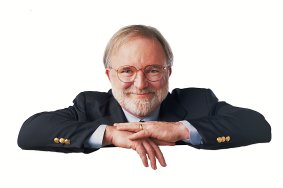 20th century healthcare is breaking-down in the face of new 21st century challenges. An emerging global chronic conditions pandemic is causing a seismic shift in demand, from acute to long-term care, resulting from aging populations and modern life-styles.
20th century healthcare is breaking-down in the face of new 21st century challenges. An emerging global chronic conditions pandemic is causing a seismic shift in demand, from acute to long-term care, resulting from aging populations and modern life-styles.
Socio-economic transformations of the globalised economy cannot sustain present models, never mind extend them to meet the growing Tsunami of new demand. The efficacy and sustainability of 21st century healthcare will require the development of new cultural and technological approaches to mobilizing and deploying resources, both human and material.
In this context, the empowerment of lay citizens as equal partners in the transformation of healthcare, is seen by a growing number of professionals and researchers as an indispensible key to the creation of 21st century healthcare.
One remarkable pioneer, researcher and advocate for patient-driven healthcare was the late Tom Ferguson MD, a physician from the USA who dedicated his last years to the production of a visionary White Paper: "e-patients - how they can help us heal health care". (see his photo above)
Before he could finish his work, Tom Ferguson died unexpectedly in April 2006 aged 62, after surviving 15 years with multiple myeloma (a type of cancer). Tom had gathered together an advisory body of colleagues and friends that he called The e-Patients Working Group, who "undertook the completion of his White Paper as an expression of their love for Tom and respect for his vision". The paper was published in 2007, with the support of a Quality Health Care Grant from the Robert Wood Johnson Foundation.
Tom Ferguson coined the term "e-patients" to describe individuals who are equipped, enabled, empowered and engaged in their health and health care decisions. He envisioned health care as an equal partnership between e-patients and the health professionals and systems that support them.
Central to Tom's vision is the use of the Internet to enable "a living breathing interactive world, in which growing numbers of our fellow-citizens -both patients and professionals- interact in highly personal and fully human ways" to transform professional medical culture and education, so that "clinicians' roles in 21st century healthcare will increasingly be to support their patients' own initiatives, to encourage patients to practice self-managed care, to help patients acquire the information, skills, tools, and support they need, and to serve as advisors along the way."
As the sub-title of his White Paper suggests, Tom advocates that the assertive baby-boom generation of Internet-savvy patients and family caregivers be recognized and supported "as a valuable new type of renewable resource, managing much of their own care, providing care for others, helping professionals improve the quality of their services, and participating in entirely new kinds of clinician-patient collaborations, patient-initiated research, and self-managed care."
In chapter 2 of the White Paper, the following preliminary conclusions are proposed as principles of patient-driven healthcare (which are further elaborated in the original paper):
- e-Patients have become valuable healthcare resources and providers should recognize them as such.
- The art of "empowering" patients is trickier than we had thought.
- We have underestimated patients' ability to provide useful online resources.
- We have overestimated the hazards of imperfect online health information.
- Whenever possible, healthcare should take place on the patient's "turf."
- Clinicians can no longer go it alone.
- The most effective way to improve healthcare is to make it more collaborative.
Tom Ferguson epitomized an "open-source" collaborative approach to the development of 21st century healthcare. His example and spirit are rightly cherished by his many colleagues -both patients and professionals- because, in Tom's words, they "can help us find sustainable solutions to many of the seemingly intractable problems that now plague all modern healthcare systems."
We therefore would like to offer the g@sms Internet platform to build upon the legacy of Tom Ferguson, to extend its reach around the world, by inviting connection and collaboration with like minded colleagues - professionals, patients and caregivers. Please send a contact email to: raymond (dot) aitken (at) globalalliancesms (dot) org
Note: all text in italic has been quoted from the White Paper.
- "e-patients - how they can help us heal health care" - a White Paper (pdf) by Tom Ferguson MD, published in 2007 - link to the wiki version
- e-patients. net - a multi-author blog by members of the e-Patients Scholars Working Group, which continues the conversations they started with Tom Ferguson MD
- doctom.com - the original website of Tom Ferguson MD
- An obituary for Tom Ferguson on Medscape



